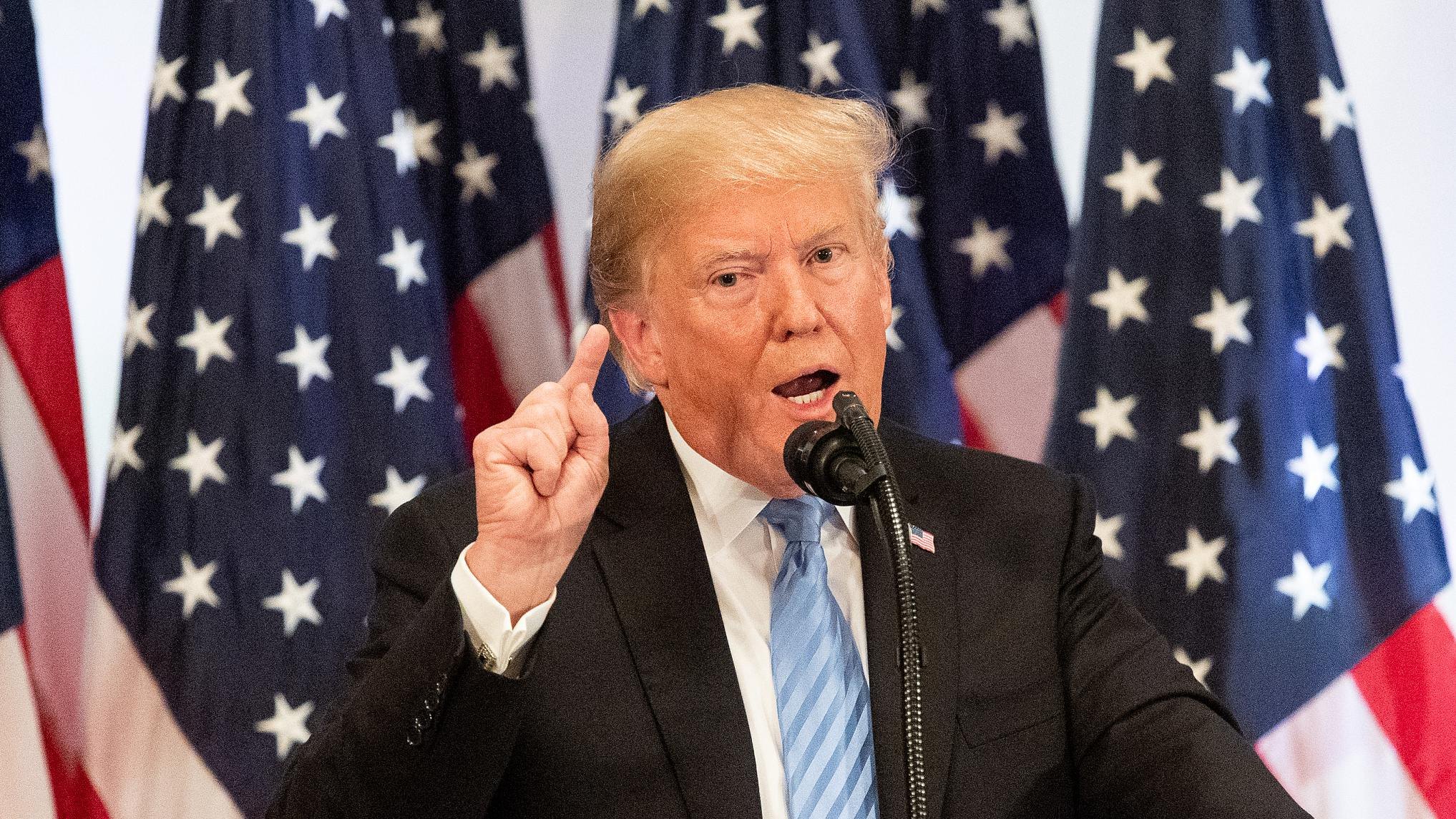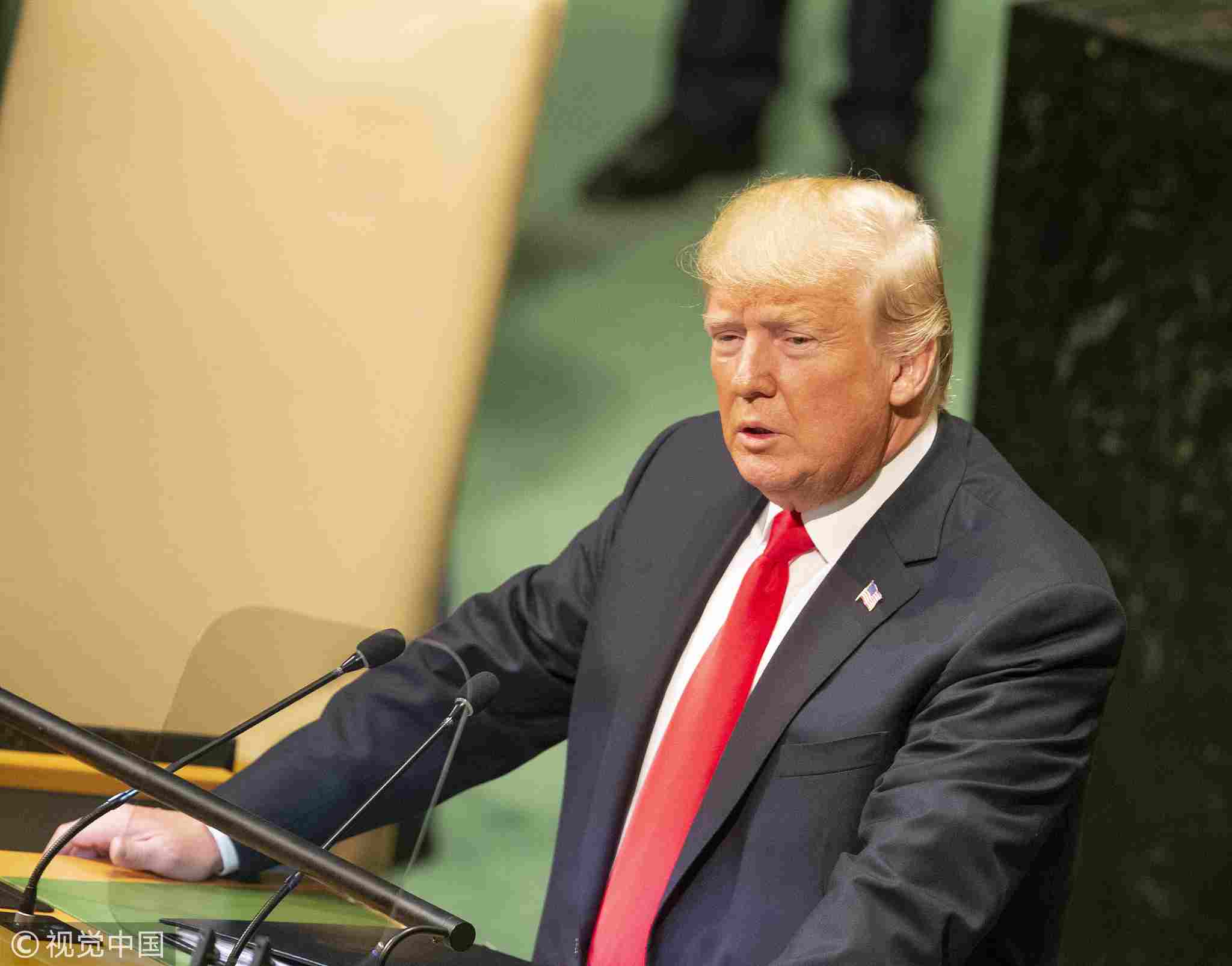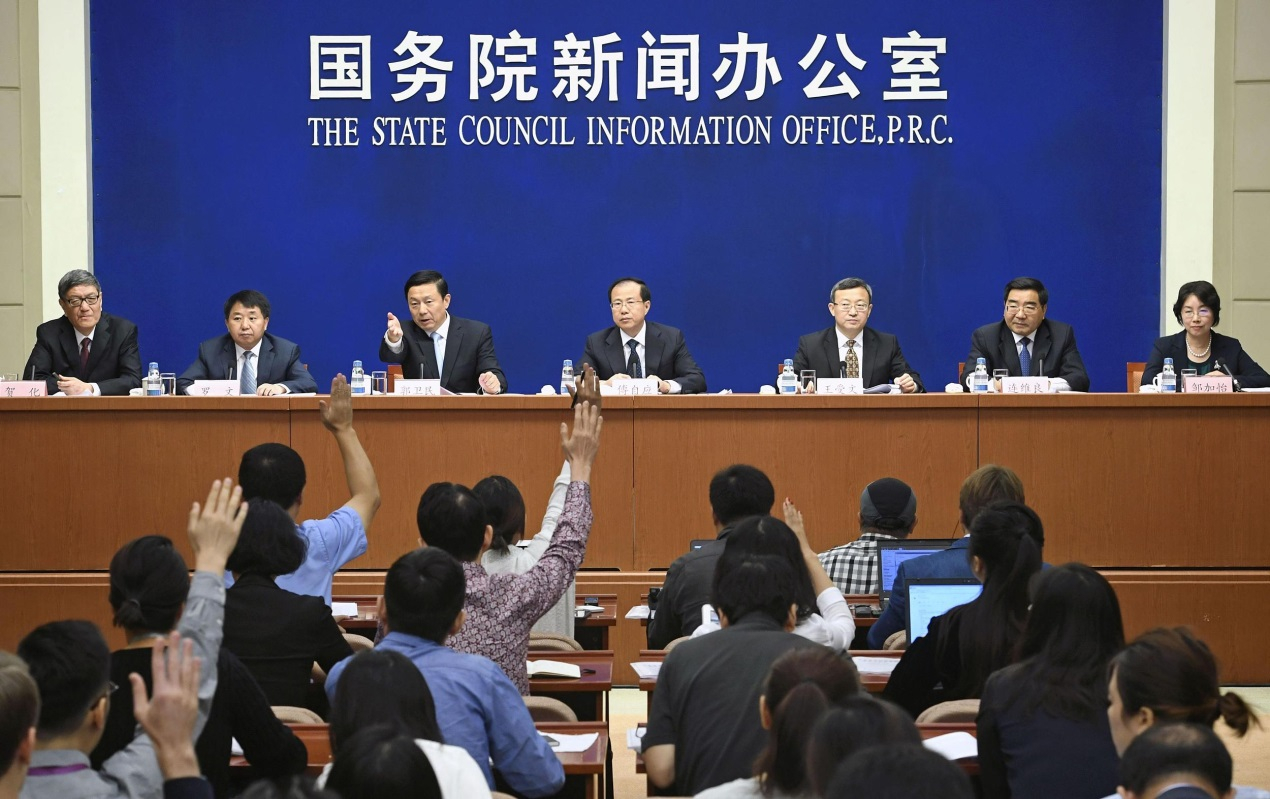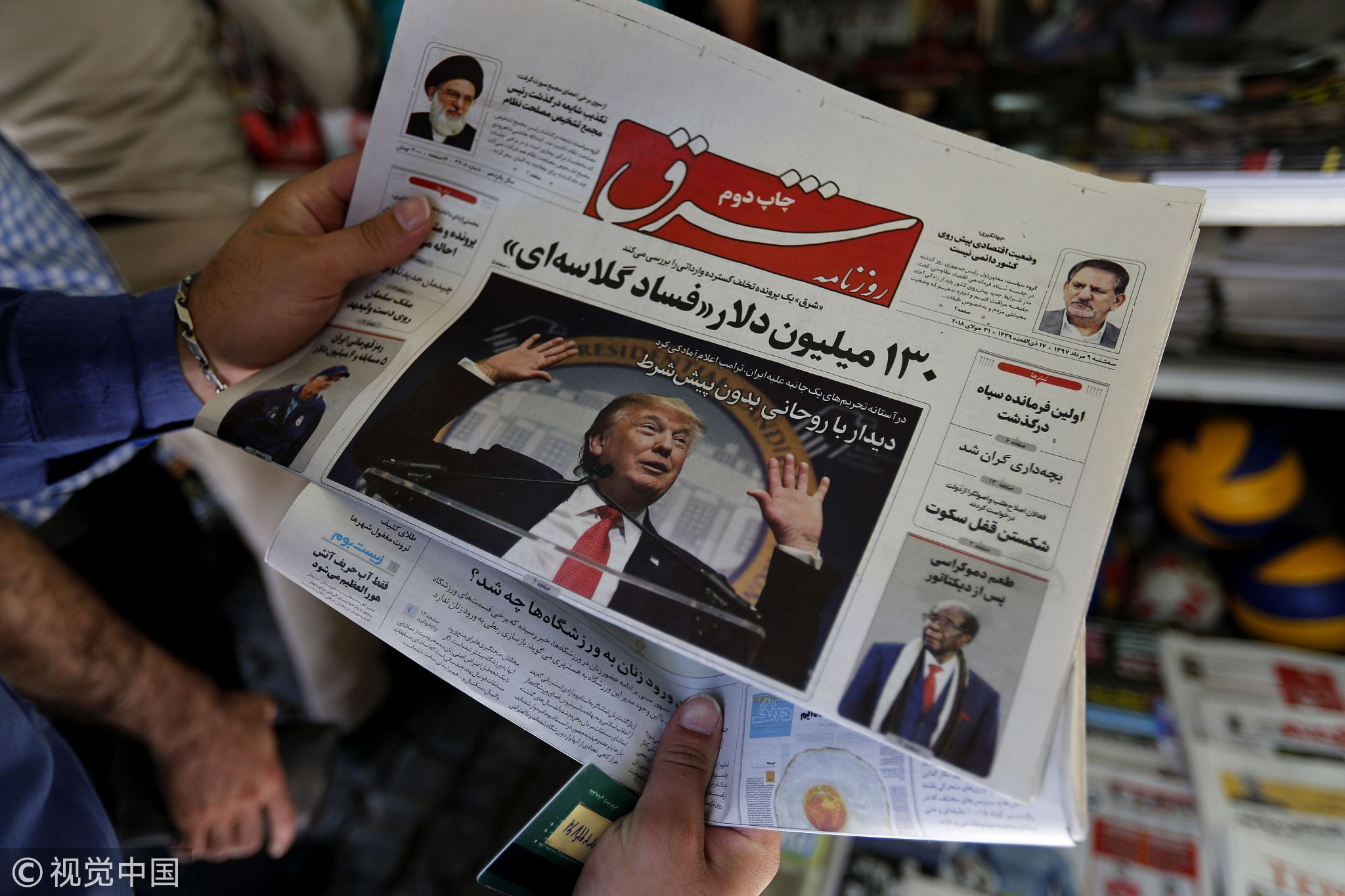
Opinions
08:12, 29-Sep-2018
Opinion: Pursuing unilateralism is doomed to be unpopular
Updated
07:49, 02-Oct-2018

Editor's note: This article is edited and translated from an editorial piece originally published in Chinese from Xinhua News Agency on September 27, 2018.
US President Donald Trump recently delivered a speech on opposing globalism and advocating for the supremacy of American national interests at the general debate of the 73rd General Assembly.
It is not difficult to find that the argument that "US national interests come first" is merely a continuation of the doctrine of "America First" and a new pretext for the US government to continue pursuing unilateralism.
For more than a year, the US government has been advocating for the doctrine of "America First" and talked down multilateralism, which has caused widespread opposition from the international community.

US President Donald Trump speaks at the 73rd UNGA session at the UN Headquarters in New York, US, September 25, 2018. /VCG Photo
US President Donald Trump speaks at the 73rd UNGA session at the UN Headquarters in New York, US, September 25, 2018. /VCG Photo
In his speech at the UN General Assembly, the US President continued to defend unilateralism, criticize the UN Human Rights Council, the International Criminal Court, and other multilateral institutions, and berate the comprehensive nuclear agreement with Iran and other multilateral agreements.
According to several US media outlets, delegates from many countries expressed doubts and dissatisfaction with the speech.
The Associated Press pointed out that "it's clear who is the minority." CNN reported that "we really don't know how to interpret it from a historical point of view" on the president's decisions since taking office, including withdrawing from the Paris Agreement and inciting China-US trade frictions without proper reasons.
Some people think that after "America First," the United States came up with "the supremacy of American national interests " only to create new rhetoric for taking unilateralist actions with no scruples.

The Chinese State Council Information Office holds a press conference on the white paper entitled "The Facts and China's Position on China-US Trade Friction" in Beijing, China, September 25, 2018. /VCG Photo
The Chinese State Council Information Office holds a press conference on the white paper entitled "The Facts and China's Position on China-US Trade Friction" in Beijing, China, September 25, 2018. /VCG Photo
The underlying statement of this new theory is to make the international community yield to the interests of the United States. In other words, the US is engaged in the practice of maintaining self-interest and openly violates international contracts and global rules in the name of protecting the supremacy of national interests.
In today's world, the international community generally supports multilateralism and has reached the consensus that cooperation is needed to cope with global challenges.
The overwhelming majority of countries remain firmly committed to promoting multilateralism, a trend that has become more evident during this session of the General Assembly and has left the US that upholds unilateralism more isolated.
UN Secretary-General António Guterres pointed out that "common action based on common sense" is the only way out when the world faces serious challenges. French President Macron called on all countries to reject the "law of the jungle."

A newspaper with a picture of US President Donald Trump on the front page, in the capital Tehran, Iran, July 31, 2018. /VCG Photo.
A newspaper with a picture of US President Donald Trump on the front page, in the capital Tehran, Iran, July 31, 2018. /VCG Photo.
On Sept. 24, foreign ministers or representatives of signatory nations of the Iran nuclear agreement, other than the United States, gathered at the United Nations to voice their continued support for the agreement. The EU announced that it will set up a legal entity to bypass US sanctions and continue trading with Iran.
The theme of this UN General Assembly is "making the United Nations relevant to all: building a peaceful, equitable and sustainable society through global leadership and responsibility sharing."
This vision contains an ardent call for the international community to share responsibilities and help each other through thick and thin, which embodies the notion of multilateralism.
Unilateralism that focuses on self-interest, no matter what rhetoric is used, will ultimately be incompatible with the multilateralism advocated by countries in a globalized world. In the era of win-win cooperation, pursuing unilateralism is doomed to be unpopular.
(If you want to contribute and have specific expertise, please contact us at opinions@cgtn.com.)

SITEMAP
Copyright © 2018 CGTN. Beijing ICP prepared NO.16065310-3
Copyright © 2018 CGTN. Beijing ICP prepared NO.16065310-3